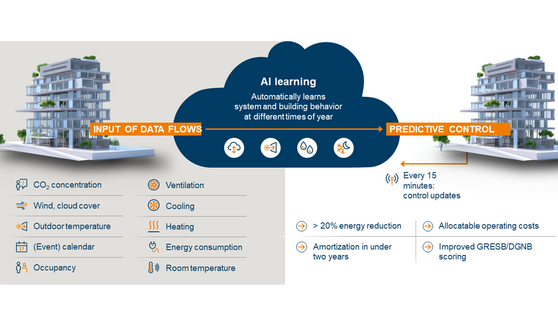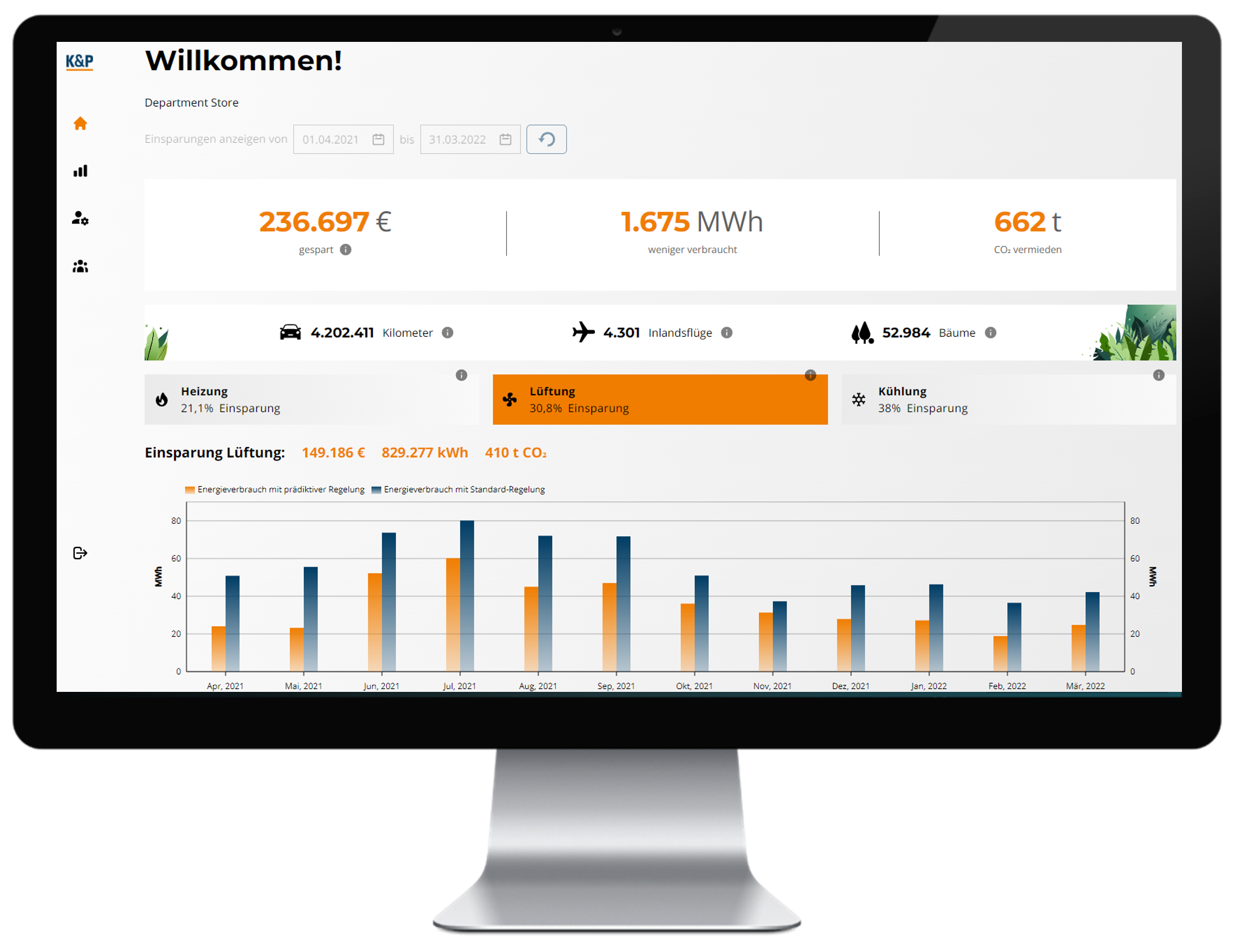Average savings with en:predict per year.
Energy consumption saved through en:predict
CO₂ emissions reduced by en:predict
Total savings through en:predict
Intelligent technologies. For efficient buildings.
Energy consumption is an important factor for lowering costs in building operation. The predictive control system en:predict is based on existing building automation solutions and uses self-learning algorithms to reduce your energy consumption from heating, ventilation and air conditioning by an average of more than 28 percent. en:predict regulates the room climate proactively, fully automatically and according to your individual needs.
en:predict: Automated learning of system and building behavior

To ensure an optimum control strategy, further relevant influences on energy consumption are taken into account in addition to the system and building data. These include weather data, occupancy data and usage/opening times, for example. Using measurement data, en:predict constantly adapts to the building or individual climate zones and the specific energy requirements.
Thanks to precise forecasts, exactly the right amount of heating, cooling and fresh air required for an optimum indoor climate is provided – using as little energy as necessary.
Your online access to the en:predict dashboard provides you with an overview of the current status of your systems at all times and enables you to see the savings made in terms of energy consumption, costs and CO₂ emissions compared to without the use of en:predict.
Part of the CO₂ Reduction Roadmap – Self-learning optimization of energy consumption
With its CO₂ Reduction Roadmap, Kieback&Peter offers a package of solutions for reducing buildings’ CO₂ emissions, and en:predict is a crucial cornerstone in this regard: With its self-learning algorithms, the solution ensures the continuous optimization of energy consumption for heating, ventilation and air conditioning and increases the value of the property, reduces operating costs and makes it easier to reliably meet legal requirements and verification obligations.
>>


